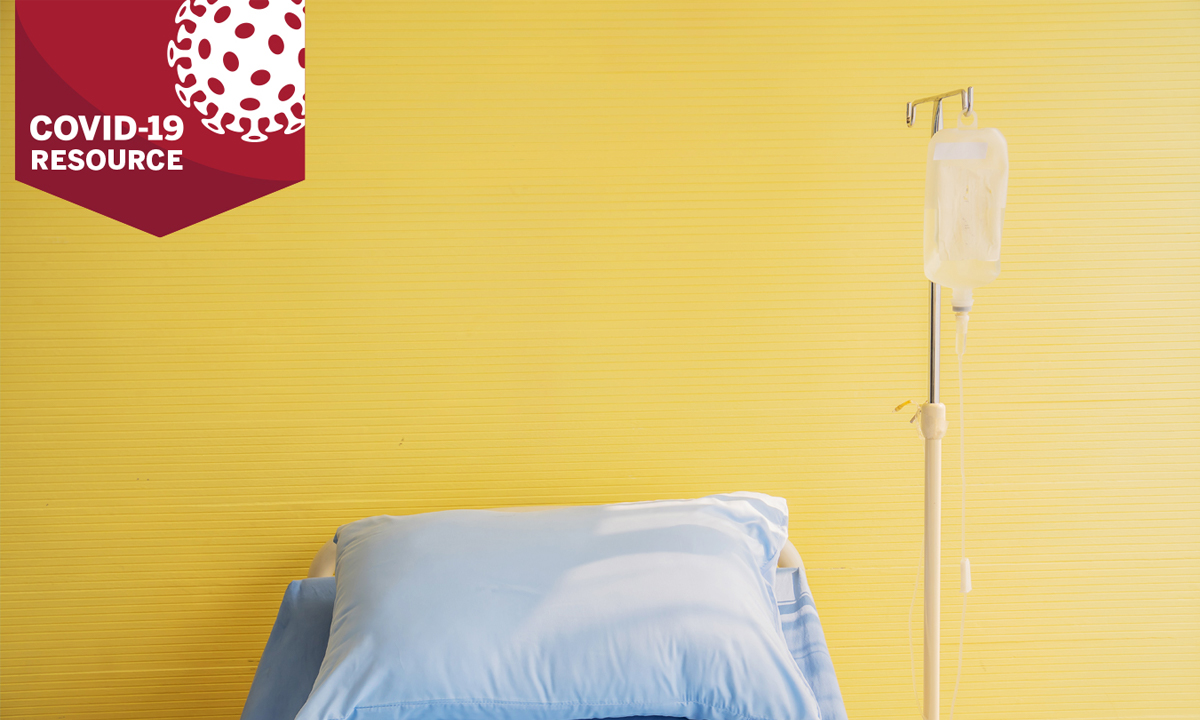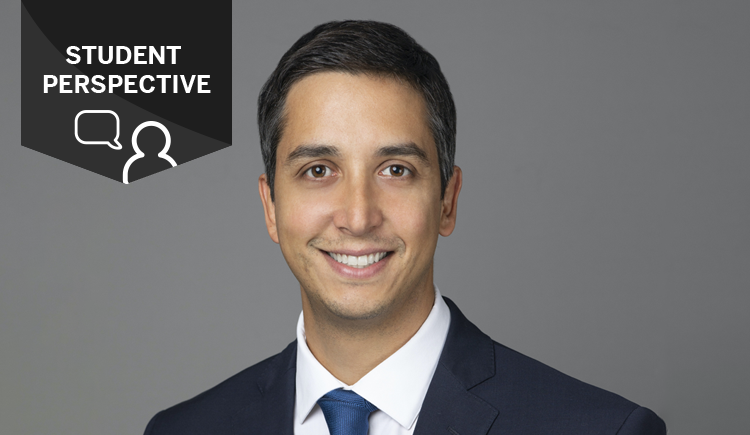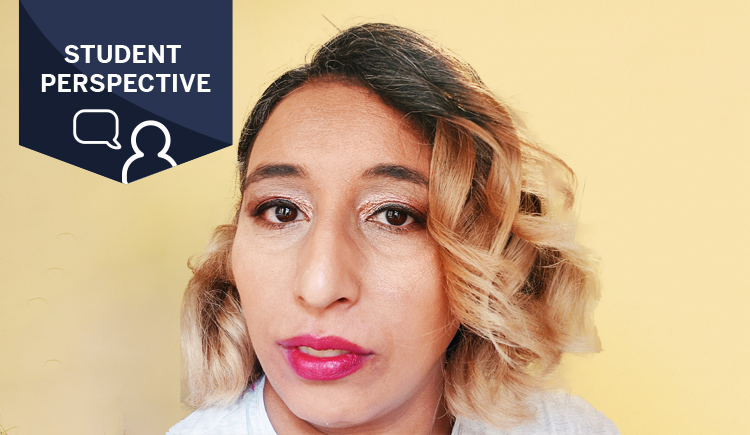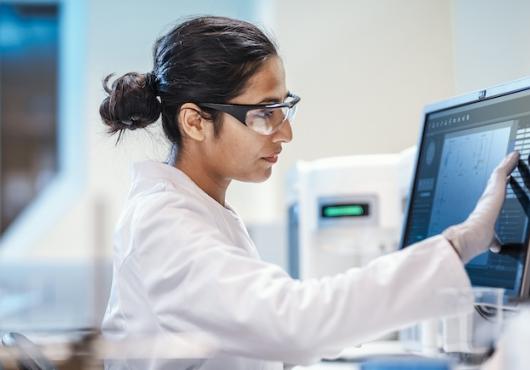
Information regarding COVID-19 has rapidly evolved. The content in this article provides a historical snapshot of events surrounding the date of posting.
Health care providers are on the frontlines in the fight against the coronavirus, yet they too are susceptible to the highly contagious nature of the disease. Their insights into both the medicine and the symptom management of their own diagnosis gives them a unique perspective into the recovery of COVID-19.
Dr. Ellen Long-Middleton, whom recently recovered from COVID herself, led a discussion with panelists, Dr. Julie Paul, Dr. Michael Saag, and Dr. Sus Waiker on their experiences also battling this novel illness. The following article is an excerpt from this discussion recorded on May 6, 2020 that has been condensed and edited for clarity and accuracy.
Dr. Waikar, can you tell us about your illness?
Dr. Waikar: My symptoms began in late March. The muscle pain was like nothing I'd felt before.
My wife was sick at the same time. We had COVID-19 simultaneously with two kids in the house— luckily ages 12 and 15, so they were able to care for themselves. The first week of the illness, we had existential panic. What would happen if we were hospitalized? Who would take care of our kids? How would we get to the hospital? It was a very scary time.
The major symptoms in the first week were severe myalgias and exhaustion like I've never felt. I was in bed about 20 hours a day. Shortness of breath wasn't much of an issue for the first week, but it then slowly came on.
One of our friends is an emergency physician and brought over a pulse oximeter for us to keep. We found that reassuring on the days when our pulse ox readings were normal. The worst it got was probably 10 days into it when my O2 saturation was about 92%. I didn't have much in the way of subjective shortness of breath. But, it was quite terrifying to see that O2 saturation.
We probably would have presented for medical evaluation had we both not been so sick. With both my wife and I unwell at the same time, we didn't have the energy, honestly, to think about bringing the other person in for evaluation. If I had been healthy and saw her condition, I would have brought her to the emergency department and vice versa.
Luckily, we didn't get hospitalized. It was a protracted illness, probably two weeks in duration. The recovery has been slower than I had hoped. I think I'm about four or five weeks into it now. This is the first week I've started to feel a bit better. There's still dyspnea on exertion. It was a very rough illness. We're very grateful that it didn't get worse.
Dr. Saag, would you share your story? Did you have similarities or differences in your experience?
Dr. Saag: I've noticed that in the patients that I see, every narrative is different. This virus is ridiculously contagious. My son and I drove from Manhattan to Birmingham in 20 hours. Turned out, he was sick. We didn't know it.
When we got home, we quarantined ourselves immediately. Despite everything I knew to do as an infectious disease doctor, my wife still got sick. Her symptoms weren't bad. We knew she had it because she lost her sense of smell.
The onset was gradual. That shortness of breath never really hit me. But it was cough, muscle aches, horrible headache that waxed and waned through the day. Day five and six is when the horror story started. I would call it a cytokine storm at night, every night. Had a horrible night. Woke up the next morning, felt better. Eight nights in a row, eight mornings in a row like that. I call them Rod Serling nights because I kept feeling like I was being transported to the Twilight Zone. It was scarier than a nightmare. I never really knew if the next hour was going to bring respiratory failure or not.
Reaching out to colleagues was very therapeutic. One of my colleagues on the West Coast called me every night. I didn't ask him to do that. He coached me through it. I found myself looking forward to the calls.
I've been back at work. I haven't had residual symptoms except for some degree of fatigue periodically. I'm taking care of COVID patients in an outpatient setting. It's remarkable. When I walk in the room and say, ‘I've had this,’ they light up and go, ‘Wow, you understand. You get it.’ The symptoms are very tough.
It occurred to me that when you are ill and have children, that you are still in part caregiving. Dr. Paul, how did you manage caring for your young adult children, but nevertheless, children?
Dr. Paul: This was challenging as everyone in my household had COVID. No one was tested, but I'm assuming they did because the symptoms were the same. High fevers, extreme fatigue, the bone pain. I was glad that they didn't get it to the same extent that I did. I felt guilty that they got it in the first place.
We reassured them. We had to limit the news and do other things. We had to keep moving to keep up the general morale. The uncertainty of not knowing what was going to happen was really scary.
Dr. Waiker, can you think of other ways COVID affected the family, not only during the acute illness but also throughout this whole recovery period?
Dr. Waiker: Both of my kids also had COVID-19. They weren't tested, but they had fever and identical, milder symptoms. We had an incredible outpouring of support from our friends and our family. We had several packages every day at the beginning of the illness of food. The support from friends and family helped us immensely.
The conflict between working and tending to my well-being in recovery was hard for me. I put much value in being productive. Suddenly, I could do nothing. I was going from one hour to the next hour.
I'm interested in your perspectives on the conflict of, ‘I need to be at work. I need to get better.’ Then how did you transition back to work? Dr. Paul what's your thinking?
Dr. Paul: It was hard. I didn't know I had COVID in the beginning. My symptoms were weird and started to escalate. I had to transition my entire clinic to telepsychiatry. It was helpful seeing patients; I could do that at home and not have to go into the office.
I tested negative on April 23, and I've been back at work. The recovery is gradual. I’m still having symptoms. You do what you can when you can do it. Sharing my diagnosis with my patients, for the ones who are really anxious, has been very helpful to show them that people do live with COVID and can live outside the diagnosis.
Dr. Waiker, what was returning to work like for you?
Dr. Waiker: I'm back at work. I moved to Boston Medical Center as chief of nephrology in September. I don't have a busy clinical presence yet or have many clinical responsibilities. I only attend for four weeks out of the year.
You want to work, but it's extremely hard to gather the energy to do so. Luckily, I was able to keep up with some of my research responsibilities. I didn't need to have others shoulder those weeks of coverage.
Dr. Saag, what do you wish you knew during the acute phase of your illness that you know now?
Dr. Saag: I wish I knew that I was not going to get sick enough to go to the hospital. If I knew that, I would have been much more relaxed. But unfortunately, I didn’t have that luxury. I wish that I had known more about how symptoms were going to come and go for many days in a row.
At the outpatient clinic, we're catching patients before they are admitted to a hospital. We're trying to keep them out and support them. I communicate to them, ‘Look, give yourself a break. Take it easy. Don't overdo it.’ That really matters.
Dr. Waiker, is it a good thing to be in health care while fighting this illness?
Dr. Waiker: It's so central to my identity, it's hard to imagine otherwise. But it was helpful to me. I would try to keep up with the clinical literature as much as I could. Knowledge for me is always helpful. Being able to interpret some of the literature in the New England Journal of Medicine or Cell was reassuring and gave me something to do.
Lastly, any closing thoughts?
Dr. Saag: I always thought of myself as being an empathetic provider. I feel even more of that now. Fortunately, I never had any serious illness before COVID. So that notion of the unknown, that notion of the fear of what's happening next, and that horror story of not knowing how to deal with things has helped (support patients).
I plunge myself 1000% into helping the community deal with the implementation of public health. Getting out there and trying to help others as much as I can. We’re so divided. It’s my cause for the moment—helping to bring us together.
-
Featured Panelists
- Dr. Ellen Long-Middleton is a family nurse practitioner and the lead nurse planner for postgraduate medical education at Harvard Medical School.
- Dr. Julie Paul is a nurse midwife, psychiatric mental health nurse practitioner and currently serves as the director of the South Shore Health perinatal behavioral health program.
- Dr. Michael Saag is a professor and division director of infectious disease in the Department of Medicine at the University of Alabama at Birmingham.
- Dr. Sus Waikar is the Norman G. Levinsky Professor of Medicine at Boston University School of Medicine and chief of nephrology at Boston Medical Center.


